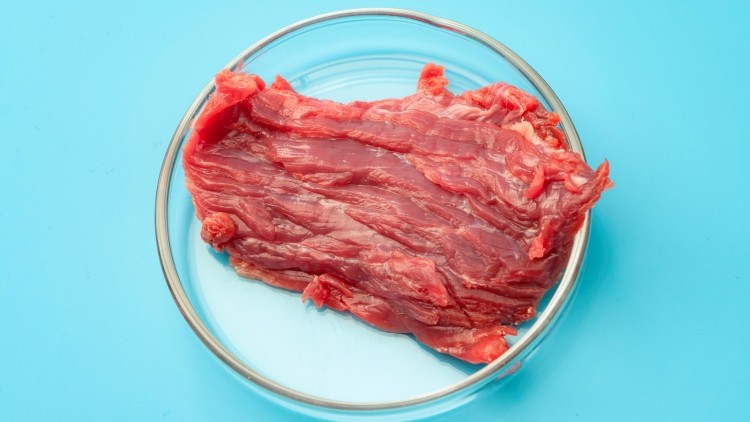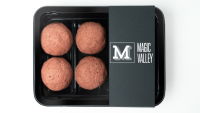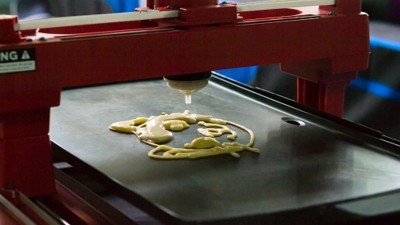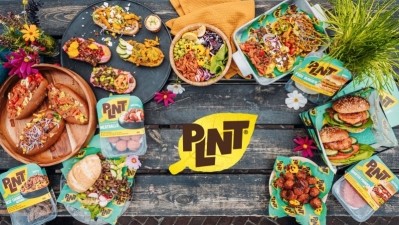Time to beef up commercialisation for cultivated meats with collaborative regulation – Australia’s Magic Valley

Since 2020, the Australian food technology company has been working on the country’s first cultivated lamb meat.
Mid- to end-last year, it announced its first prototype, which was a minced lamb product. Last month it unveiled its second prototype, a minced pork product to be incorporated into dumplings and wantons.
Magic Valley’s founder and CEO, Paul Bevan, told FoodNavigator-Asia that the latter has been in the works for the last six months, and it is currently working on a beef prototype.
The start-up is looking to file regulatory approval with government agency Food Standards Australia and New Zealand (FSANZ) later this year. It says that in the upcoming six months, the team would honing the nutritional profile and gathering more feedback from potential consumers on what they want to see in their meat products to hone the prototypes further.
Ongoing regulatory talks
However, Bevan shared that engagement with regulators has always been ongoing since they started developing the products.
“We have been talking to the regulators for 18 months now about our processes. It’s a very consultative process, and they have been really great to deal with actually. We fit into the existing frameworks and is considered a novel food. Every step in the way we have been consulting with them around what we are doing, as we wanted to ensure that we were going down a pathway that the regulator is happy with.”
Notably, Bevan added that the certainty in timeframes provided by the FSANZ was a decisive factor for them to make Australia its first launch market:
“Australia has quite a good framework to consider for cultivated meat products based on what we’ve already seen. We have a statutory timeframe of nine to twelve months to get a decision back on our application. Whereas in other jurisdictions, it remains as an open-ended process, so you can submit your application and there is no end-date for that. Particularly in Europe, it’s a bit like that. What’s happening in Singapore, the US and Israel is that they are building clearer guidelines now, but they still vary widely across regions.”
Additionally, awareness of cultivated meat among Australian consumers have increased for the last four years since the brand started operations which led to advancements in the regulatory frameworks.
When asked about export markets, it is targeting China, Middle East and US for lamb products and Asia-Pacific (APAC), which includes domestically where Australia is a net importer, for its pork products.
Limitless possibilities of the tech
Magic Valley prides itself from doing away with the use of foetal bovine serum (FBS) in its meat cultivation process. FBS is a widely adopted means in the space, criticised as inhumane as it is obtained from the calf fetal blood from pregnant cows during slaughter.
Bevan said that from the regulatory and commercial perspective, FBS is not a sustainable means for the business:
“If you’re using an adult stem cell for muscle or fat biopsy, which most other companies are doing that, there comes a point when the cells will stop growing – known as Hayflick Limit – and you have to go back to the animal to take more cells. I guess that's the difference between using an adult stem cell or FBS, as opposed to us who is using induced pluripotent stem cells.”
He added that its in-house technology takes only one cell sampling from the animal, usually through skin scraping from the ear of the animal, and it never needs to take another sample from them once it has established that initial cell line for meat cultivation.
Besides the ethics, the start-up touted that the possibilities are “limitless” when it comes to the kind of meats its technology can cultivate.
“Our technology allows us to obtain cell samples from any animal and grow those up to create a meat product. We’ve done lamb, pork, and beef now. Ideally, we are looking at developing products for all farmed animal species, particularly land animals, and aquatic animals after that.”
Most cultivated meat start-ups launch a minced meat version of their products first as “unstructured products are technologically simple to develop.” The start-up is looking to develop strips and chunks next, followed by chops, in the next 24 months.
Furthermore, it teased the use of 3D printing for bone-in meat in the future, but the cost of the technology remains a challenge.
“3D printing is still quite expensive and the process is quite slow. But we’d expect advances to speed up the process and the cost to come down as well. We’re hopeful in the future that the technology eventually can produce those structured, whole cuts potentially with bones.”




















